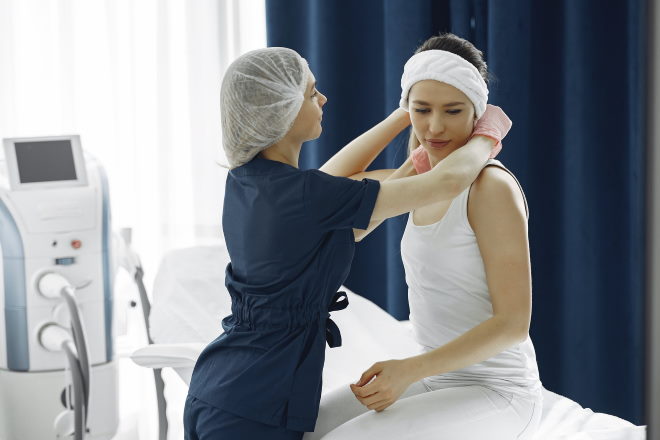NHS Rhinoplasty: Everything You Need to Know About Getting a Nose Job on the NHS
Rhinoplasty, commonly known as a nose job, can be performed through the NHS under specific circumstances. Understanding the eligibility criteria, preparation requirements, and the distinction between medical and cosmetic procedures is essential for anyone considering this surgical option. The NHS provides rhinoplasty primarily for functional issues rather than purely aesthetic concerns, making it crucial to understand when this procedure qualifies for public healthcare funding.

The National Health Service offers rhinoplasty procedures, but accessing this treatment requires meeting specific medical criteria. Unlike private cosmetic surgery, NHS rhinoplasty focuses primarily on addressing functional problems and medical conditions that significantly impact a patient’s quality of life. Understanding the pathway to NHS rhinoplasty involves knowing the eligibility requirements, preparation steps, and realistic expectations about what the service covers.
What is Rhinoplasty and When is it Covered by NHS?
Rhinoplasty is a surgical procedure that reshapes the nose by modifying bone, cartilage, or both. The NHS covers rhinoplasty when it addresses medical conditions such as breathing difficulties caused by a deviated septum, nasal trauma resulting from accidents, congenital abnormalities affecting function, or significant psychological distress related to severe nasal deformities. The procedure aims to improve nasal function, correct structural problems, or address cases where the nose’s appearance causes substantial psychological impact. NHS rhinoplasty typically focuses on restoring normal function rather than enhancing appearance for purely aesthetic reasons.
Eligibility for NHS Rhinoplasty: Who Can Qualify for a Nose Job?
NHS rhinoplasty eligibility depends on demonstrating medical necessity rather than cosmetic preference. Patients must typically show evidence of functional breathing problems, documented sleep disturbances due to nasal obstruction, or psychological distress severe enough to warrant medical intervention. A GP referral to an ENT specialist or plastic surgeon is usually required, followed by comprehensive assessments including physical examinations and sometimes psychological evaluations. The waiting times can be substantial, often ranging from several months to over a year, depending on the severity of the condition and local NHS trust resources. Priority is given to cases involving significant functional impairment or trauma-related deformities.
Is NHS Rhinoplasty Available for Cosmetic Reasons or Only Medical Conditions?
The NHS primarily reserves rhinoplasty for medical conditions rather than purely cosmetic concerns. However, the distinction isn’t always clear-cut, as some cases involve both functional and aesthetic components. Purely cosmetic rhinoplasty is generally not available through the NHS, requiring patients to seek private treatment. Exceptional circumstances might include severe congenital deformities that cause significant psychological distress, documented through psychiatric assessment. The NHS applies strict criteria to ensure resources are allocated to cases with genuine medical need rather than aesthetic preferences. Patients seeking cosmetic improvements typically need to explore private healthcare options.
How to Prepare for Your NHS Rhinoplasty: Tips for a Successful Procedure
Preparation for NHS rhinoplasty involves several important steps to ensure optimal outcomes. Patients should maintain good general health, avoid smoking for at least six weeks before surgery, and follow pre-operative instructions provided by the surgical team. Mental preparation is equally important, including realistic expectations about results and understanding that NHS rhinoplasty prioritizes function over aesthetics. Arranging post-operative support, including time off work and assistance with daily activities, is essential. Patients should also prepare their home environment for recovery, ensuring comfortable sleeping arrangements with elevated head positioning and easy access to medications and supplies.
| Procedure Type | NHS Coverage | Private Cost Estimation |
|---|---|---|
| Functional Rhinoplasty | Fully covered when medically necessary | £4,000 - £7,000 |
| Cosmetic Rhinoplasty | Not covered | £4,000 - £8,000 |
| Revision Rhinoplasty | Limited coverage for complications | £5,000 - £10,000 |
| Septoplasty (breathing issues) | Fully covered | £3,000 - £5,000 |
Prices, rates, or cost estimates mentioned in this article are based on the latest available information but may change over time. Independent research is advised before making financial decisions.
Conclusion
NHS rhinoplasty represents a valuable healthcare option for patients with legitimate medical needs affecting nasal function or causing significant psychological distress. While the eligibility criteria are strict and waiting times can be lengthy, the service provides essential surgical intervention for those who qualify. Understanding the distinction between medical necessity and cosmetic preference is crucial for setting realistic expectations about NHS coverage. Patients considering rhinoplasty should consult with their GP to explore whether their condition meets NHS criteria or if private treatment might be more appropriate for their specific needs and timeline.
This article is for informational purposes only and should not be considered medical advice. Please consult a qualified healthcare professional for personalized guidance and treatment.




